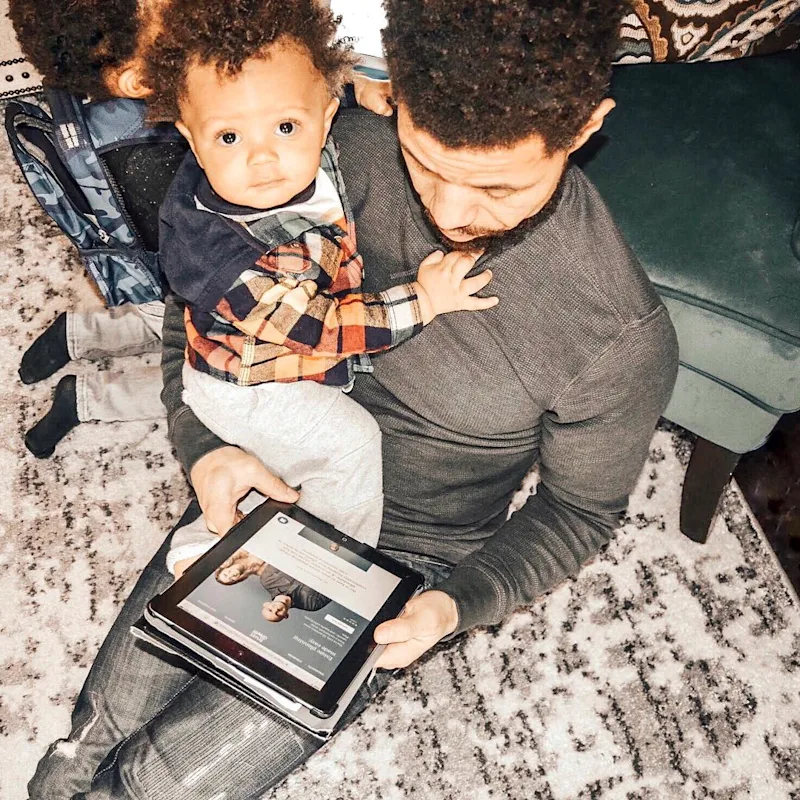
How to Sell the Car of a Deceased Person
Navigating the death of a loved one is hard enough– the last thing you want to think about is how to sell their car. We’re here to make it easier with this guide.

By Staff Writer
Trust & Will
When a family member or friend dies, there can be a lot to work through. The grieving process can be complex and different in every scenario. There are many resources for dealing with grief and handling personal loss, but there is another aspect to a person’s death that is sometimes less talked-about: what do you do with the things that they left behind?
This can be one of the hardest things to deal with after a death. Going to their home, emptying out their closet, boxing up their possessions – it can be a painful reminder and a kind of closure at the same time. But sooner or later, it has to be done. And there is a particular possession that people frequently wonder what to do with once their loved one is gone: the car they owned. Who gets it now? Should it be kept? Should it be sold? How do you sell a deceased person’s car?
Deciding what to do with the car of a loved one who has passed is a personal decision, often influenced by practical, financial, and emotional needs. While some cars may be kept, and some may be given to another family member to use, often the cars of deceased people are sold to a new buyer. There are several important steps that must be taken to sell the car of a deceased loved one. If you’re wondering how to sell the car of someone who has died, keep reading for a simple how-to.
Find the Will of the Deceased Person
Selling the car of a deceased family member or friend first depends on whether there was a Will or other estate planning in place, and if the Will specified who would inherit the car. Since only the car’s owner can sell it – and as the car title owner, transfer its title – to another person, establishing who is the new legal owner of the car must be handled first.
If there is a Will, the person named as Executor of the Estate and/or the beneficiary of the car will be able to sell it. If the estate goes to Probate, a letter of testamentary can be given through the local Probate Court testifying that the cars’ new owner can legally sell the vehicle. If the estate does not go to Probate, an Affidavit for Transfer of Personal Property can be used to transfer the car to the person to whom it was left in the Will. If there is no Will, the deceased person’s estate will have to go through Probate, during which their assets will be identified and their heirs will be determined. An Executor of the Estate will also be named by the court during the Probate process.
If you have inherited the car, you must obtain the car’s title to sell it. This process may differ from state to state, but the local DMV website should have information on acquiring a vehicle’s title. At the very least, you should have a copy of the car’s original title and a copy of the original owner’s death certificate. In some states, this may be all you need in order to transfer the title to you, as the new owner and person who is able to list the vehicle for sale. So what comes next?
Check for Unpaid Loans on the Car
Before you can sell the car of a deceased person, you’ll need to make sure that there isn’t a lien on the car. A car must be sold with a clean title – and that means there can’t be any unpaid debt attached to it. An unpaid balance on the car will have to be paid off by you, as the new owner. The lender will then give you a clear title to sell the car.
Cancel existing insurance on the car
Most likely your loved one had some sort of insurance coverage on their car. Before you sell the car, you’ll need to cancel the existing car insurance policy for the vehicle. When you do this, you may need to show the insurance provider the letter of testamentary – which denotes you as the car’s owner – and the death certificate of the deceased.
Know Your Survivorship Rights
Whether or not there was a Will, there are some instances when transferring a car to its new owner might be a given. A car will most simply be transferred to another person after its owner dies if:
The car was jointly-owned – Sometimes two people can both own a car, a married couple for instance, or a parent and adult child. In this case, the car is owned by both people and when one of them dies, full ownership transfers to the surviving owner. An ID and the death certificate of the deceased owner should be all that’s needed to sell the car then.
The title has “Transfer on Death” or “TOD” on it – If this is indicated on the car’s title, there will be a person named on the title as the recipient of the vehicle upon the owner’s death. If the estate does not require Probate, a letter from the courts stating that the car may be sold by you without the estate going through probate, along with the death certificate, will be required to sell the car.
The Importance of Estate Planning
While it may be difficult to process grief and come to the decision to let go of a loved one’s belongings, deciding is the first step. Selling the car of a deceased person will depend on several important and situation-specific factors. That’s why estate planning is always a good idea. With the right kind of Estate Plan for you and your family, you can ensure that every personal, financial, and state-specific base is covered. Creating a Will online is a convenient way to let you take stock of your belongings, legally distribute your assets to your choice of heirs, and make your final wishes known. Estate planning can also help those who are left behind avoid time and money spent in Probate Court, and it can aid in preventing misunderstanding among friends and family members of the deceased.
Here at Trust & Will, we’re here to help you keep things simple. Our online estate planning documents can be completed from the comfort of your own home in just 20 minutes. Take our free quiz to see where you should get started, or compare our different estate planning options. Get started today!
Is there a question here we didn’t answer? Reach out to us today or chat with a live member support representative!
Last updated: August 28, 2025



